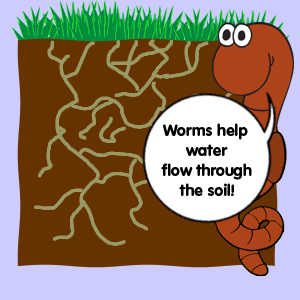North Carolina Worms - Questions
North Carolina Worms - Questions
Blog Article
The Only Guide for North Carolina Worms
Table of Contents7 Simple Techniques For North Carolina Worms4 Simple Techniques For North Carolina WormsNot known Factual Statements About North Carolina Worms Not known Incorrect Statements About North Carolina Worms
Example: 1-gallon of worm castings to 4 gallons of potting mix. 1/2 mug in the base of the growing opening for smaller sized plants. 1 cup for larger plants.
The enhancement of tea can likewise add increased microbial biomass to your soil. You can always side-dress your plants with worm spreadings any time. Simply remember, the microorganisms will certainly die if exposed to UV rays (Sunlight), so make sure to cover the castings with an inch approximately of dirt.
This baffled them for years up until the screening methods came to be better. It would certainly obtain better(with even more spreadings), level off, and then decrease. Too numerous worm spreadings would speed up the development to a pace that the plant might not recover from.
Little Known Questions About North Carolina Worms.
Numerous herbicides work with this same principle. So, 20% by quantity appears to be the "Sugary food Place". I have stated the merits of worm spreadings for regarding 2000 words. What regarding the opposite of the coin? Absolutely nothing is best. Worm spreadings are no various. It requires time to develop quality worm spreadings.
Worm castings absolutely set you back even more than chemical fertilizers. Worm castings are on the less expensive end of organic fertilizers. (50 gallons per year) It is a much tougher and really pricey financial investment to create huge amounts of worm spreadings.

Developing a healthy and balanced dirt may be the biggest benefit of worm castings. We went over worm spreadings NPK and likewise the correct nutrient analysis that need to apply to worm spreadings.
Some Ideas on North Carolina Worms You Need To Know
We talked concerning some of the disadvantages associated with worm spreadings. I covered a whole lot of material in this short article.
The upright burrows are normally open, although the worms cover the top with deposit and excrement. The vertical burrows are very important points of entrance for quick water infiltration into the dirt, specifically in no-till systems. Air-filled porosity is critical in helping plant origins to thrive. Origins require oxygen for their development, whereas they generate co2 that requires to leave the dirt.
Earthworms enhance porosity by two systems: (1) by developing permanent burrows, and (2) by boosting soil aggregation. Gathering is improved by the mixing of soil and raw material in the earthworms' guts. Lake James Bait. These very stable aggregates are deposited by some earthworms in their burrows, and by others at the surface of the soil


In one more research study, earthworms were estimated to consume 4 to 10 percent of the leading 6 inches of the soil every year. Dirt compaction lowers the porosity of the dirt.
Some Known Details About North Carolina Worms
Normal earthworm populations can easily consume 2 lots of dry matter per acre per year, partly digesting and mixing it with soil. The value of earthworms to mix surface area deposit with dirt ends up being really clear in dirts that do not have any kind of earthworms. A lot of our Pennsylvania dirts have at least some earthworms, and the result of their full lack, as a result, can not be kept in mind.
(https://coles-directory.com/gosearch.php?q=http%3A%2F%2Fwww.northcarolinaworms.com%2F)In these dirts, the formation of topsoil with reasonable raw material content did not occur, resulting in bad plant development. As soon as the cause was established, the federal government of the Netherlands started a project to present earthworms. After the introduction of the earthworms, a dark topsoil layer was formed, and crop development increased substantially.
They live largely from partly broken down organic issue that is currently integrated in the soil. These species consume big amounts of soil that they mix with digested crop residue in their guts.
Their burrows remain open, although they cap the top with crop residue that they pull to the entryway. These varieties consume considerable amounts of soil that they blend with absorbed residue in their guts. Their waste matter is primarily transferred at the surface of the soil. The nightcrawler Lumbricus terrestris is one of the most prominent member of this team.
Report this page